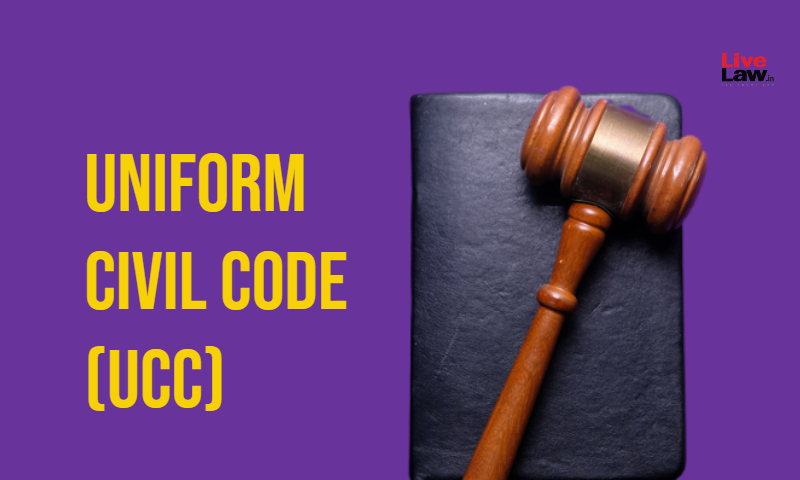Examining the Uniform Civil Code: Law Commission Seeks Public and Religious Bodies' Views
The Law Commission has initiated a process to reevaluate the matter by seeking opinions on the Uniform Civil Code (UCC) from the general public and recognized religious organizations. This comes nearly four years after the Law Commission of India released a consultation paper stating that a UCC was not necessary or desirable at that time. The Commission's decision to reopen the discussion stems from the significance and relevance of the subject, as well as various court orders on the matter.
The public notice issued by the Commission, led by former Chief Justice of the Karnataka High Court, Ritu Raj Awasthi, stated that more than three years have passed since the issuance of the consultation paper. It highlighted that the 22nd Law Commission of India deemed it appropriate to deliberate on the subject once again, considering its importance and the evolving court orders. The notice further mentioned that the Commission has been examining the UCC matter since receiving a reference from the Ministry of Law & Justice on June 17, 2016.
In June 2016, the Ministry of Law and Justice referred the implementation of a UCC to the Law Commission for examination. However, the Commission did not submit a final report on the issue and instead provided a consultation paper on the "Reform of Family Law" in August 2018. This consultation paper expressed the view that a Uniform Civil Code was not necessary or desirable at that stage. It recommended amending and codifying existing family laws across religions to address discrimination and inequality present in personal laws. The consultation paper was one of the final reports submitted by the 21st Law Commission, headed by former Supreme Court judge BS Chauhan.
A Uniform Civil Code entails a unified set of laws governing personal matters such as marriage, divorce, adoption, inheritance, and succession for all citizens, regardless of their religion. Presently, different laws regulate these aspects for adherents of different religions, and a Uniform Civil Code aims to eliminate these inconsistent personal laws.
Article 44 of the Constitution, a Directive Principle of State Policy, stipulates that the State should strive to establish a uniform civil code for all citizens throughout India. However, directive principles, as clarified by Article 37, are not enforceable by courts.
In the notable Shah Bano Case of 1985, which dealt with maintenance for Muslim women, the Supreme Court expressed regret that Article 44 had not been effectively implemented, emphasizing that a common civil code would promote national integration by removing conflicting ideologies arising from different laws.
Similarly, in the Sarla Mudgal Case (1995), which addressed issues of bigamy and conflicts between personal laws in matters of marriage, the court once again stressed the need for a Uniform Civil Code. It requested the Prime Minister of India to review Article 44 and work towards establishing a Uniform Civil Code for all citizens throughout India, with updates provided to the Court on the progress made.
However, subsequent orders by the Supreme Court in the Ahmedabad Women Action Group Case (1997) and the Lily Thomas Case (2000) clarified that the court did not issue a direction to the government to enact a uniform civil code in the Sarla Mudgal case.
As recently as March 23, the Supreme Court concluded a series of petitions advocating for a UCC by stating that such matters should be decided by Parliament and that the courts should not be perceived as instructing the legislature to enact a law. A bench led by Chief Justice of India Dhananjaya Y Chandrachud stated that entertaining these petitions would require directing the enactment of a law, and a court cannot issue a mandamus to Parliament for the creation of a specific statute.
In response to these petitions, the Union government submitted an affidavit in October 2022, stating that personal laws based on religion are detrimental to national unity. The government asserted that a UCC would foster integration by establishing a consistent legal framework for different communities. However, the government also reminded the court that it is the responsibility of elected representatives and the legislature to decide whether a UCC should be implemented, and that courts cannot issue directives to Parliament regarding the framing of a particular statute.

Comments
Post a Comment